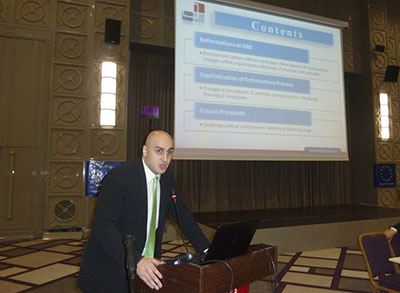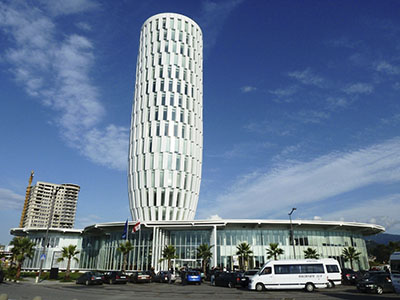On 17 October 2011, the kick-off meeting for the new Twinning project “Better Enforcement System Through Twinning (BESTT)” took place in Tbilisi.

Nika Melia
Twinning projects are an instrument of the European Union for candidate countries and countries of the European Neighbourhood Policy. Normally Twinning projects are to be conducted by bodies of public administration of EU member states, which in this way help their counterparts in the beneficiary countries in implementing specific parts of the acquis communautaire or aligning procedures and practices with standards of the European Union. In some cases, bodies of public administration may be assisted in the implementation of Twinning projects by so-called ‘mandated bodies’. On behalf of the Netherlands Ministry of Security and Justice, CILC has the status of mandated body and is, as such, entitled to be involved in Twinning projects.
In the Twinning project “Better Enforcement System Through Twinning (BESTT), two EU member states – the Kingdom of the Netherlands through CILC and the Kingdom of Sweden through the Swedish Enforcement Authority – work together as implementers and partners for this cooperation programme with the National Bureau of Enforcement of Georgia (NBE). Furthermore, the project will be supported by the International Union of Judicial Officers (UIHJ) and the French École Nationale de Procédure.

Public Service Hall
The aim of the project is to further enhance the functioning of the Georgian enforcement system through the strengthening of the NBE. The implementation of this 18 months project started on 1 September 2011. The project foresees consultations between representatives of the Twinning Partners, working group meetings, training sessions, engagement of international and local experts on legislative and administrative aspects of the profession, as well as trainers. Furthermore, three study visits (to France, the Netherlands and Finland/Estonia) will address a number of selected but interrelated issues connected with the following: the enhancement of the legislative and regulatory provisions applicable to the civil, commercial and administrative law and procedure with regard to enforcement; the enhancement of human and administrative capacities for training of local trainers, training of the NBE spokespersons; and ensuring better public understanding and perception of the enforcement system in the country and the role of the NBE.

